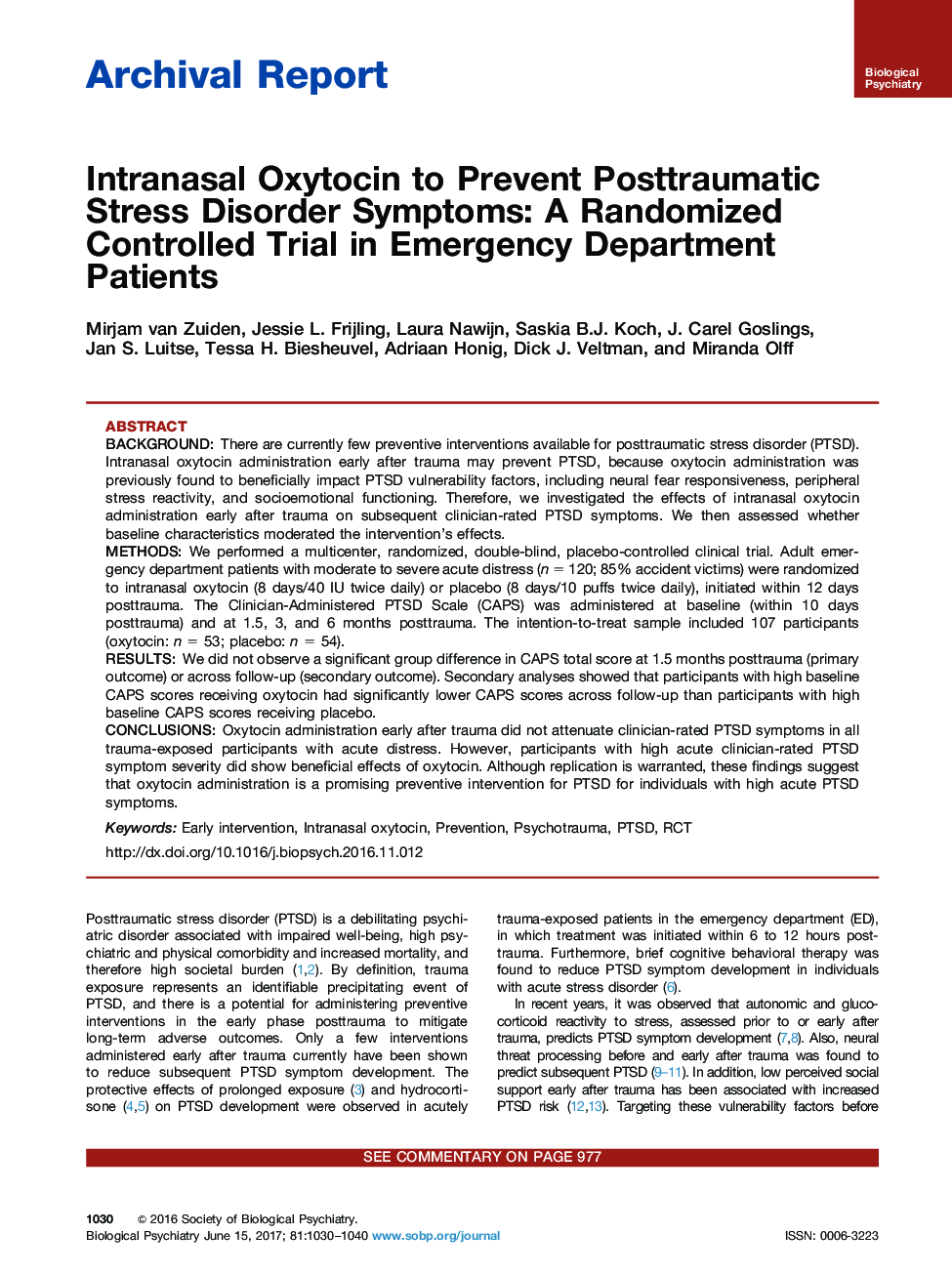| کد مقاله | کد نشریه | سال انتشار | مقاله انگلیسی | نسخه تمام متن |
|---|---|---|---|---|
| 5720425 | 1411315 | 2017 | 11 صفحه PDF | دانلود رایگان |
BackgroundThere are currently few preventive interventions available for posttraumatic stress disorder (PTSD). Intranasal oxytocin administration early after trauma may prevent PTSD, because oxytocin administration was previously found to beneficially impact PTSD vulnerability factors, including neural fear responsiveness, peripheral stress reactivity, and socioemotional functioning. Therefore, we investigated the effects of intranasal oxytocin administration early after trauma on subsequent clinician-rated PTSD symptoms. We then assessed whether baseline characteristics moderated the intervention's effects.MethodsWe performed a multicenter, randomized, double-blind, placebo-controlled clinical trial. Adult emergency department patients with moderate to severe acute distress (n = 120; 85% accident victims) were randomized to intranasal oxytocin (8 days/40 IU twice daily) or placebo (8 days/10 puffs twice daily), initiated within 12 days posttrauma. The Clinician-Administered PTSD Scale (CAPS) was administered at baseline (within 10 days posttrauma) and at 1.5, 3, and 6 months posttrauma. The intention-to-treat sample included 107 participants (oxytocin: n = 53; placebo: n = 54).ResultsWe did not observe a significant group difference in CAPS total score at 1.5 months posttrauma (primary outcome) or across follow-up (secondary outcome). Secondary analyses showed that participants with high baseline CAPS scores receiving oxytocin had significantly lower CAPS scores across follow-up than participants with high baseline CAPS scores receiving placebo.ConclusionsOxytocin administration early after trauma did not attenuate clinician-rated PTSD symptoms in all trauma-exposed participants with acute distress. However, participants with high acute clinician-rated PTSD symptom severity did show beneficial effects of oxytocin. Although replication is warranted, these findings suggest that oxytocin administration is a promising preventive intervention for PTSD for individuals with high acute PTSD symptoms.
Journal: Biological Psychiatry - Volume 81, Issue 12, 15 June 2017, Pages 1030-1040
